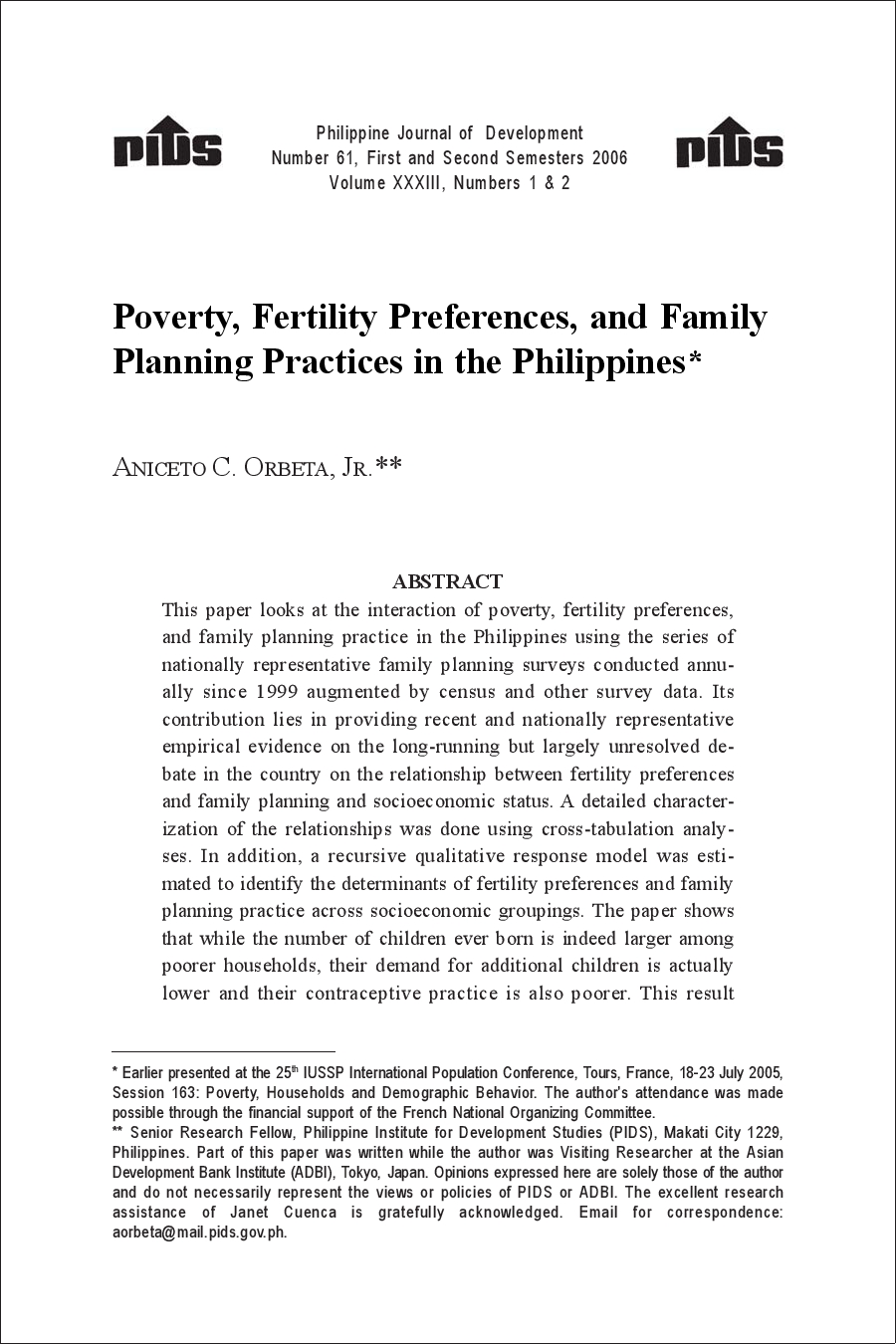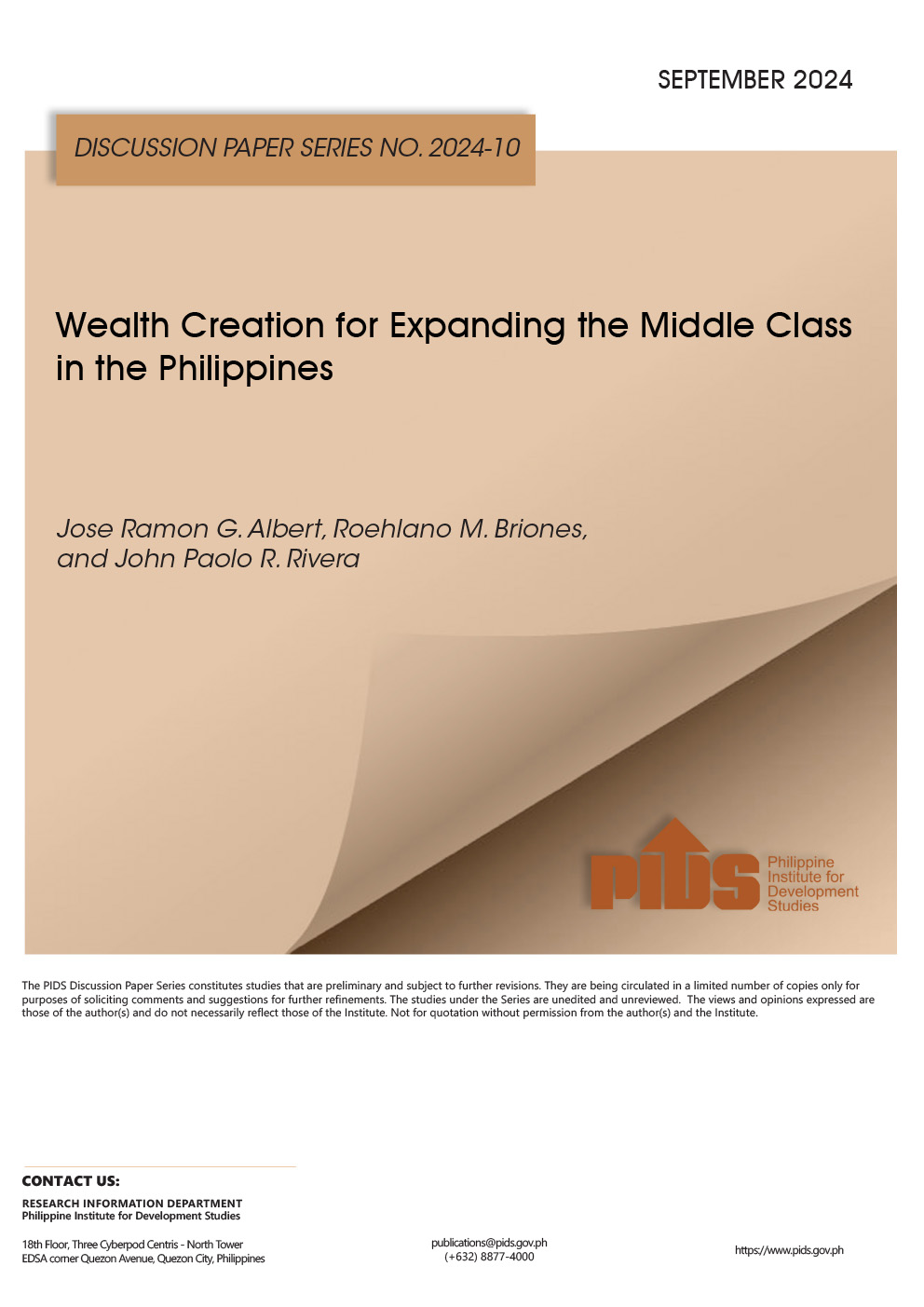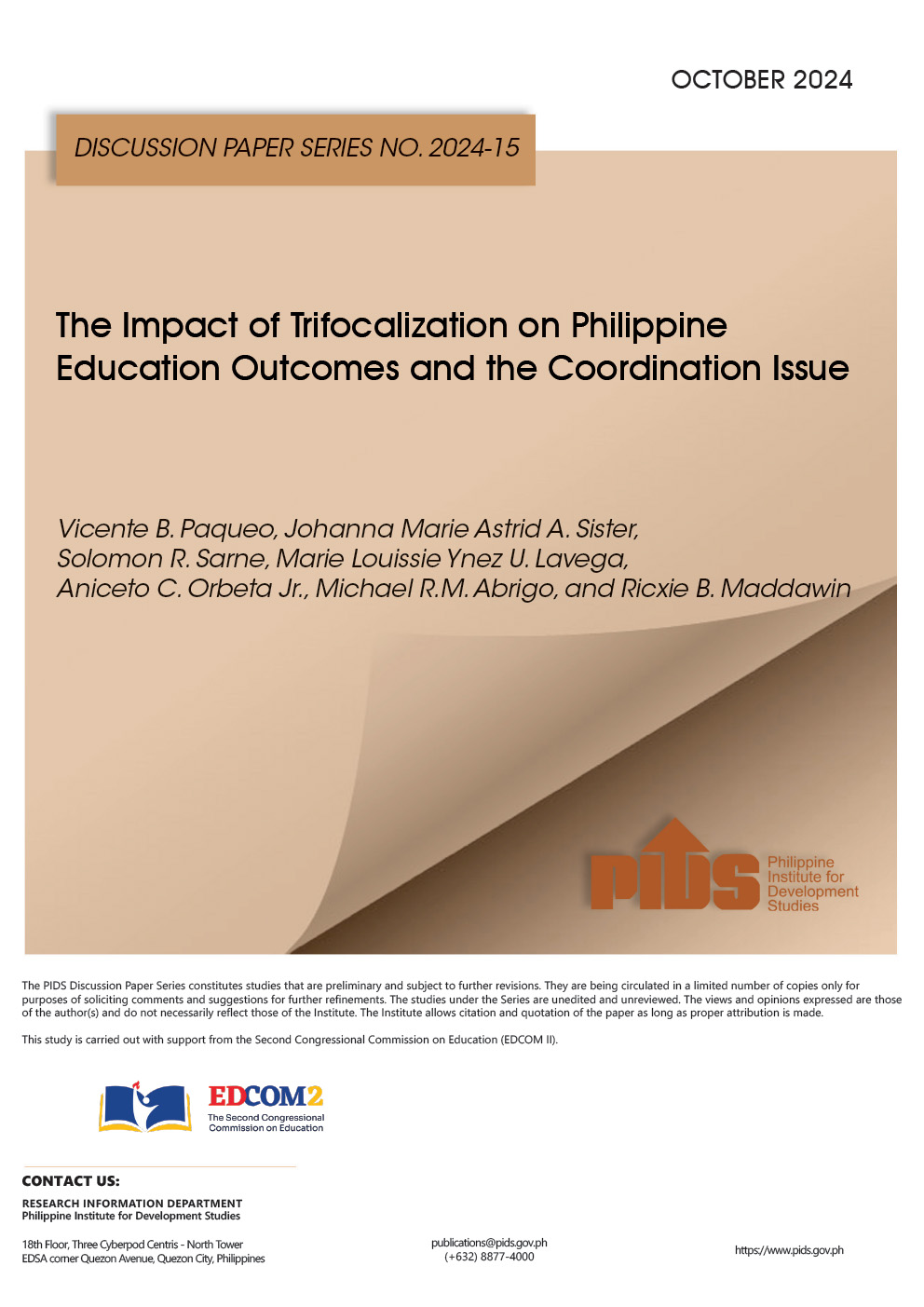This paper looks at the interaction of poverty, fertility preferences, and family planning practices in the Philippines using the series of nationally representative family planning surveys conducted annually since 1999 augmented by census and other survey data. Its contribution lies in providing recent and nationally representative empirical evidence on the long-running but largely unresolved debate in the country on the relationship between fertility preferences and family planning and socioeconomic status. The paper shows that while the number of children ever born is indeed larger among poorer households, their demand for additional children is actually lower and their contraceptive practice is also poorer. This result indicates that, in the case of the Philippines, the larger number of children among the poor is more the result of poorer contraceptive practice than the higher demand for additional children.
Citations
This publication has been cited 3 times
- Dumas, Christelle and Arnaud Lefranc. 2013. “Sex in marriage is a divine gift”: For whom? Evidence from the Manila contraceptive ban. THEMA Working Papers 2013-22. THEMA (THéorie Economique, Modélisation et Applications), Université de Cergy-Pontoise.
- Dumas, Christelle and Arnaud Lefranc. 2016. “Sex in marriage is a divine gift”: For whom? Evidence from the Manila contraceptive ban. Post-Print hal-00867874. HAL.
- Dumas, Christelle and Arnaud Lefranc. 2013. “Sex in marriage is a divine gift”: For whom? Evidence from the Manila contraceptive ban. IZA Discussion Papers 7503. Institute of Labor Economics (IZA).












